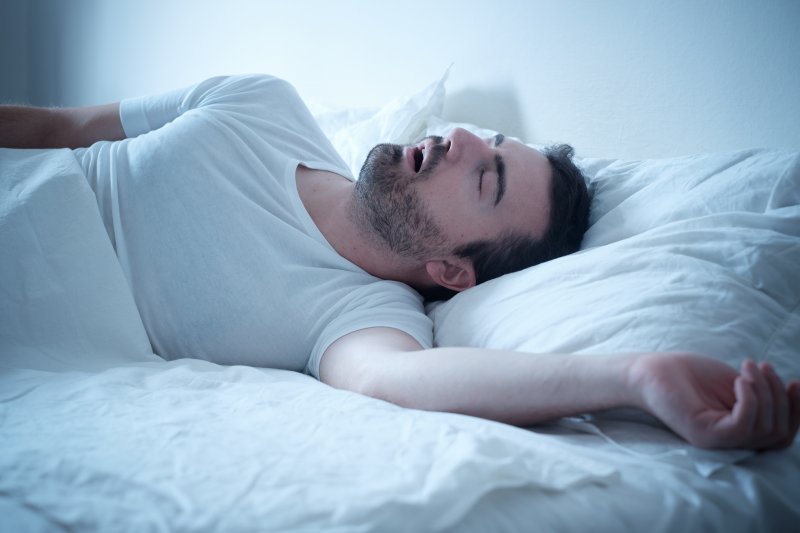How Does Alcohol Consumption Impact My Sleep Apnea?
April 15, 2022

If you wake up most mornings feeling exhausted, sluggish, and desperate to fall back asleep, you might be suffering from sleep apnea—but did you know that drinking alcohol at night before bedtime can make this condition even worse? Many people enjoy a quick nightcap before bed, convinced that the drink will help them fall asleep; but if you suffer from sleep apnea , you should avoid doing this! Here’s what you need to know about the relationship between alcohol and sleep apnea.
What Causes Sleep Apnea?
Obstructive sleep apnea is a condition that affects roughly 20% of Americans, but only about half have received a diagnosis; you’re also more likely to have it if you’re middle-aged or older, overweight, or have a naturally narrow airway.
During an episode of sleep apnea, your air passage tightens significantly and interrupts your body’s natural breathing cycle. This causes your body to wake up to stabilize your breathing—and sometimes it’s difficult for your body to quickly fall back asleep.
When your body has to spend time and energy normalizing your breathing instead of entering deep sleep, it’s not receiving the rest it needs. And adding alcohol into the equation only makes things more difficult for your body!
How Does Alcohol Impact Sleep Apnea?
Even if you haven’t been diagnosed with sleep apnea, you’re still at risk of developing it if you’re consuming alcohol before bed. Studies show that moderate or heavy drinking can cause obstructive sleep apnea in people who don’t even have the condition. However, for those with the condition, the consequences become even more pronounced—alcohol can increase the time between when you stop breathing and wake up.
Alcohol natural decreases your body’s drive to breathe—which if you have sleep apnea, is already an issue. Your breathing becomes slower and shallow, and your throat muscles become more relaxed which can cause your airway to collapse. This contributes to snoring and sometimes the complete obstruction of the throat.
What Can I Do to Fall Asleep?
If sleep apnea is preventing you from getting quality rest every night, there are measures you can take that don’t involve alcohol, such as:
- Ensure that your body is hydrated before bed.
- Maintain a soothing, stress-free evening routine.
- Go to bed at the same time every night and don’t stay up too late.
- See a doctor about your sleep issues so you can receive treatment!
If you have sleep apnea, it is best to abstain from alcohol use before bed; the complications it can cause are simply not worth the risk. Instead of seeking the bottle, seek out proper sleep apnea treatment and get back to feeling rested every morning.
About the Author
Dr. Eric Coontz has served the needs of patients in the Albuquerque area for several years. He completed his dental doctorate at the Loyola University School of Dentistry in Chicago, and he is a member of several professional organizations including the American Academy of Sleep Medicine, the American Sleep and Breathing Academy (Diplomate status), and the Academy of Associate Sleep Professionals, among others. If you have any questions about sleep apnea or would like to schedule an appointment, Dr. Coontz can be contacted through his website or by telephone: (505) 433-2107.
No Comments
No comments yet.
RSS feed for comments on this post.
Sorry, the comment form is closed at this time.
